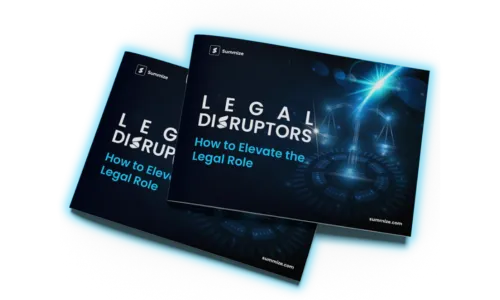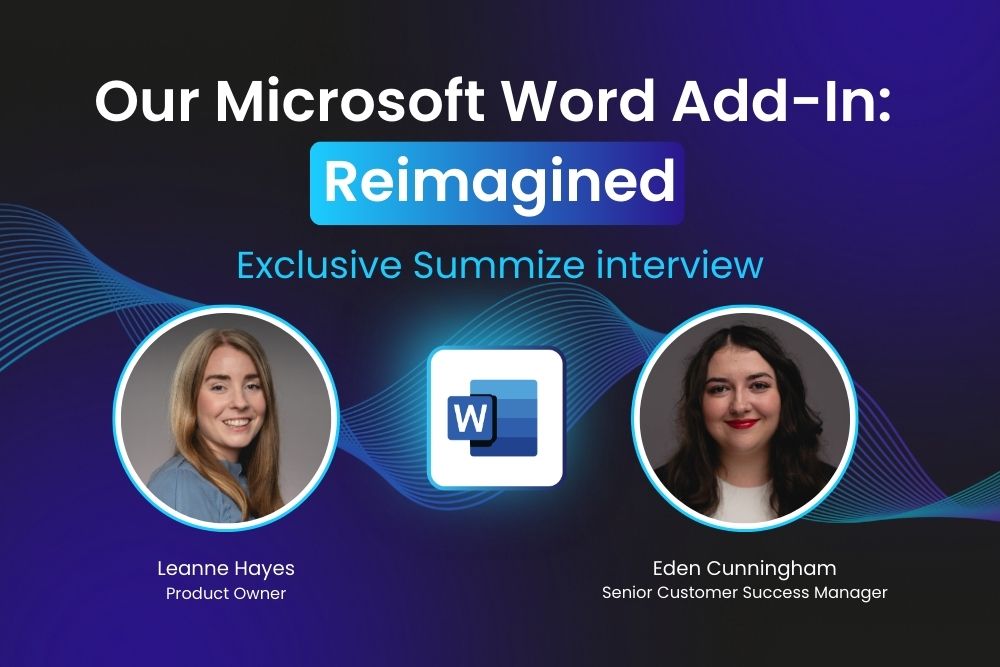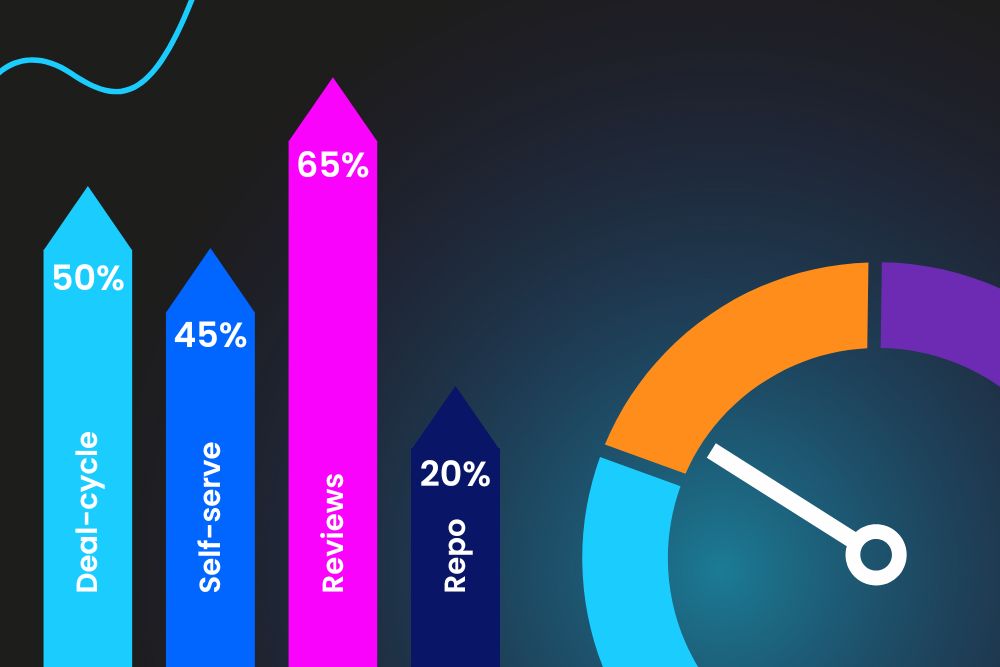Taking diversity in legal seriously
Katie Passley (Senior Solicitor at EY) and Steven John (DEI Lead & Head of Customer Success at Summize) talk about DEI in the legal industry.
June 13, 2022
December 19, 2025
The latest episode of our Legal Disruptors pocast is one of the most moving and honest conversations the series has produced so far. Host Graeme Smith introduces listeners to a deeply personal and thought, provoking discussion between Katie Passley, Senior Solicitor at EY and a committed diversity and inclusion ambassador, and Steven John, Summize’s Head of Customer Success and DEI lead.
Both Katie and Steven bring something rare to the DEI conversation: lived experience, vulnerability, and a willingness to talk about the uncomfortable truths many organizations still struggle to face. What begins as a discussion about workplace inclusion quickly evolves into something far bigger - intersectionality, psychological safety, the failures of institutions, the impact on families, and why DEI cannot simply be a corporate checkbox.
A conversation that refuses to look away
From the outset, Steven speaks candidly about a pattern he notices across many organizations: people burying their heads in the sand. Not because DEI doesn’t matter, but because acknowledging it would force them to confront complicity, bias, or silence. Yet, as Steven points out, even the business case is undeniable, diverse teams perform better, make stronger decisions, and reflect the changing workforce.
Katie brings her own experiences from the legal sector, where she has watched talented black female colleagues walk away from roles because the psychological safety simply wasn’t there. For her, DEI can’t be performative, and it certainly can’t be optional. It must be pushed from the top down, with real commitment rather than short, lived reactions that fade once the headlines move on.
The human cost behind the conversation
One of the most powerful moments in the episode is when Katie shares a traumatic, racially motivated attack on her mixed, ethnicity family, an incident that changed them forever. It’s the kind of story that forces listeners to confront the reality that racism isn’t theoretical. It isn’t historical. It still happens, and its effects stay with people for years.
Her daughter Jasmine’s experiences in school, being singled out for her hair, feeling like she never fit in, add another layer to the discussion. Schools, workplaces, and society all play a role, and Katie is blunt about the emotional toll of constantly having to educate others while protecting her child from harm.
Paired with Steven’s reflections on navigating life as both black and gay, facing racism in LGBTQ+ spaces and homophobia in black ones, the conversation becomes a deep exploration of intersectionality. These aren’t abstract discussions; they are lived realities that shape careers, identities, and everyday decisions.
Slow progress, but progress all the same
Despite the heaviness of the themes, the conversation is far from hopeless. Both Steven and Katie talk about the gradual shifts they’re starting to see - more awareness, more openness, more people willing to have difficult conversations. But they’re also honest about how slowly institutions move and how crucial it is to keep pushing, educating, and holding leaders accountable.
As Katie puts it, genuine change is like turning an oil tanker. It’s slow, deliberate, and requires everyone on board.
Why you should listen
This episode isn’t just about policy or corporate initiatives. It’s about people, their identities, their safety, their experiences, and their hope for workplaces that welcome rather than exclude them.
If you care about DEI, work in the legal sector, or simply want to understand how inclusion actually feels to the people who need it most, this episode will stay with you long after it ends.
To hear from even more of our Legal Disruptors podcast, explore our Legal Disruptors hub.
Discover even more!
Explore more about contracting and CLM in our ultimate contract guides








